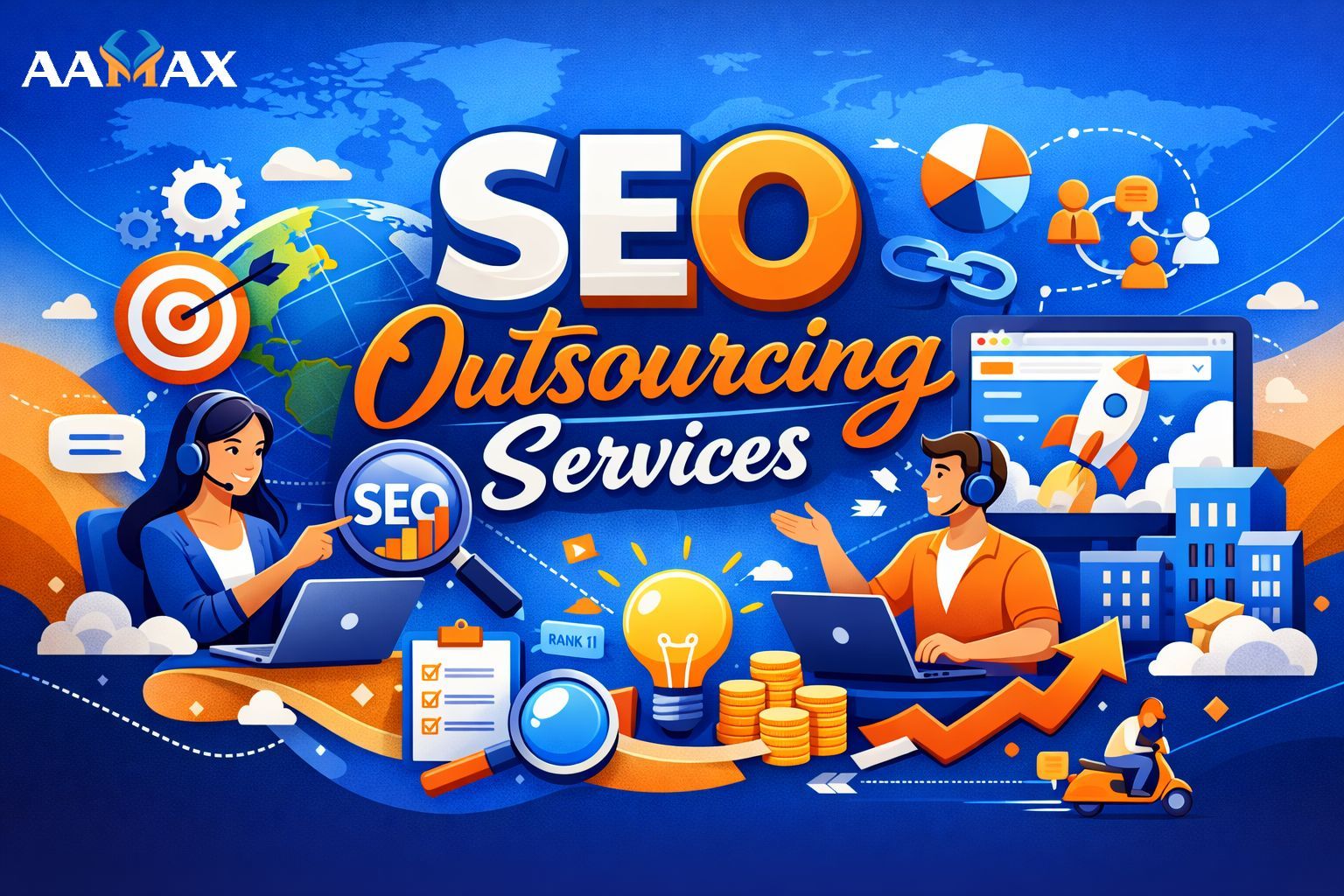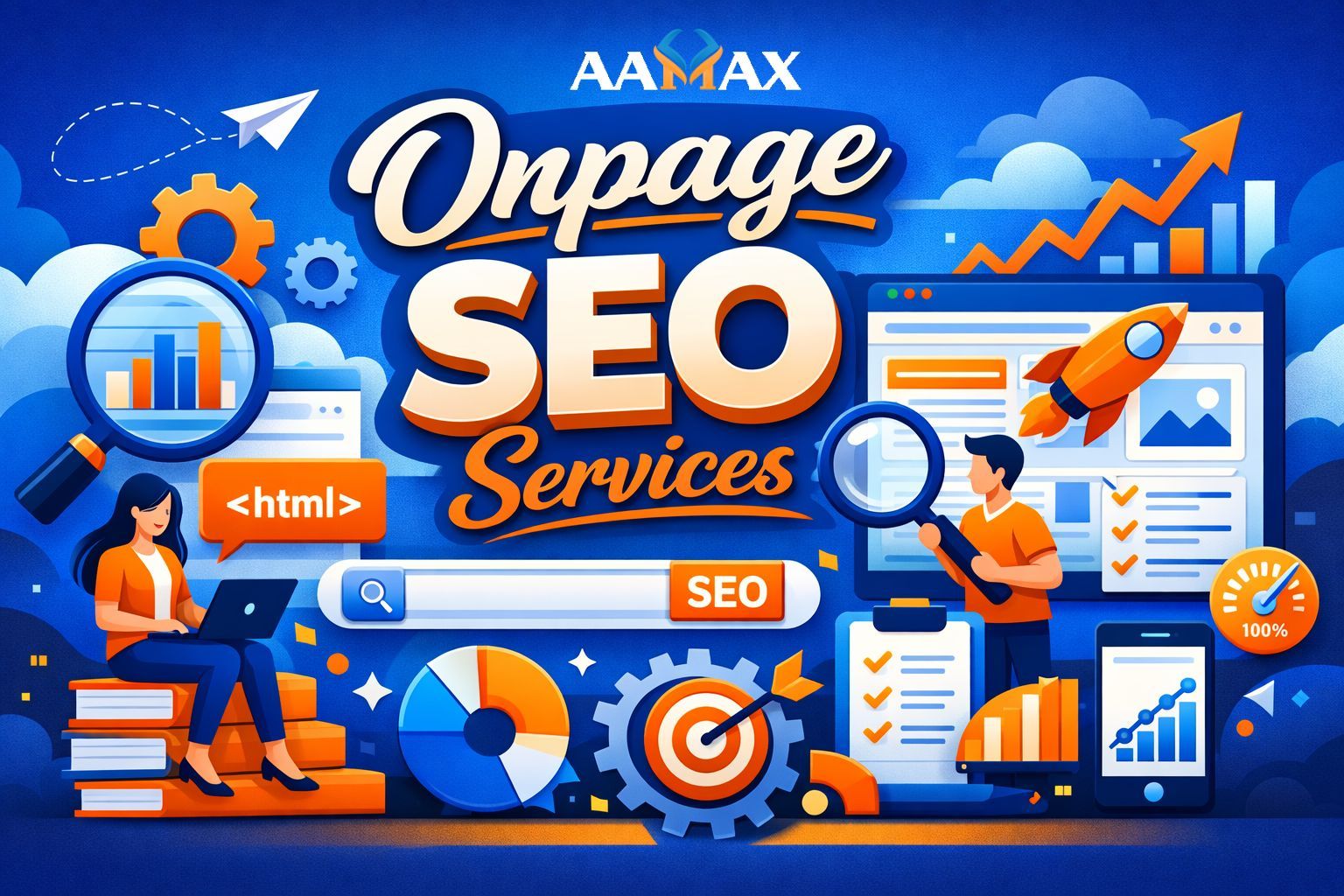
What Is My SEO Score? (Plus 10 Factors That Affect It)
If you’ve ever wondered how well your website is performing in search engines, you’ve likely come across the term SEO score. Your SEO score reflects how optimized your website is for search engine visibility and user experience. It’s a snapshot of how effectively your website follows SEO best practices — covering technical setup, content quality, backlinks, and mobile friendliness.
Understanding your Search Engine Optimization (SEO) score is crucial because it helps you identify what’s working and what needs improvement. In this guide, we’ll explore what an SEO score is, how it’s calculated, and the top 10 factors that affect it. By the end, you’ll have a clear roadmap to improve your SEO performance and outrank competitors.
What Is an SEO Score?
An SEO score is a numerical representation (typically between 0 and 100) that indicates how well your website aligns with the technical, on-page, and off-page factors that impact search engine rankings. The higher your score, the better optimized your site is.
While Google doesn’t officially assign SEO scores, various SEO tools such as Moz, SEMrush, Ahrefs, and Google’s PageSpeed Insights calculate their own versions of an SEO score based on key ranking factors.
Why It Matters
Your SEO score directly influences your visibility in search engines. A strong score means:
- Your website loads quickly.
- Your content is relevant and optimized.
- Your site structure is search-engine friendly.
- You’re earning quality backlinks and user trust.
On the other hand, a low score often indicates technical issues, poor content structure, or weak authority — all of which can prevent your site from ranking well.
How Is SEO Score Calculated?
SEO scores are usually calculated by analyzing multiple aspects of your website and assigning weighted values to each. These aspects typically fall into four main categories:
- Technical SEO: Site speed, crawlability, mobile-friendliness, and security.
- On-Page SEO: Keyword optimization, content structure, meta tags, and user experience.
- Off-Page SEO: Backlinks, domain authority, and brand mentions.
- User Experience (UX): Mobile performance, readability, and engagement metrics.
A complete SEO audit measures these areas and then combines the results into an overall score. For example, if your website performs well technically but has weak backlinks, your score might average out in the 70s or 80s.
What Is a Good SEO Score?
Generally speaking:
- 90–100: Excellent – Your website is fully optimized.
- 70–89: Good – Some room for improvement.
- 50–69: Fair – Needs significant optimization.
- Below 50: Poor – Major SEO issues exist.
The goal isn’t to achieve a perfect score but to continuously improve. SEO is a long-term process, and consistent updates can keep your score high over time.
Why You Should Check Your SEO Score Regularly
Checking your SEO score helps you monitor progress and spot issues before they impact rankings. Regular checks:
- Identify broken links and missing metadata.
- Reveal keyword gaps.
- Track technical performance.
- Guide content strategy updates.
Treat your SEO score as a health check for your website. It’s not just about vanity metrics; it’s a powerful diagnostic tool for long-term growth.
10 Factors That Affect Your SEO Score
Let’s dive into the ten most important factors that impact your SEO score — and what you can do to improve each one.
1. Website Loading Speed
Why It Matters:
Page speed is a critical ranking factor. Slow-loading websites frustrate users and cause them to leave, increasing bounce rates. Search engines like Google prioritize fast sites because they improve user experience.
How to Improve:
- Optimize images and use next-gen formats (like WebP).
- Implement caching and a content delivery network (CDN).
- Minify CSS, HTML, and JavaScript.
- Use fast and reliable hosting.
You can test your website speed using Google PageSpeed Insights or GTmetrix.
2. Mobile-Friendliness
Why It Matters:
With mobile-first indexing, Google primarily uses the mobile version of your website for ranking. If your site isn’t mobile-friendly, you’re likely losing visibility and traffic.
How to Improve:
- Use responsive design that adapts to all screen sizes.
- Ensure clickable elements are large enough to tap.
- Optimize mobile navigation and readability.
- Avoid intrusive pop-ups and heavy scripts.
A mobile-optimized website not only improves SEO but also boosts conversions.
3. Content Quality and Relevance
Why It Matters:
Search engines reward websites that offer valuable, original, and well-structured content. Quality content helps you rank for relevant keywords and positions your brand as an authority.
How to Improve:
- Focus on user intent when writing content.
- Incorporate relevant keywords naturally.
- Use proper heading structures (H1, H2, H3).
- Keep your content updated and detailed.
High-quality content is the foundation of a strong SEO score.
4. Keyword Optimization
Why It Matters:
Keywords bridge the gap between what users search for and what your website offers. Effective keyword targeting ensures that your pages appear in the right search results.
How to Improve:
- Conduct thorough keyword research using tools like Moz, Ahrefs, or SEMrush.
- Use long-tail keywords to attract more specific audiences.
- Optimize titles, meta descriptions, and headings.
- Avoid keyword stuffing — focus on readability and context.
5. Technical SEO Health
Why It Matters:
Technical SEO ensures that search engines can efficiently crawl and index your website. Issues like broken links, duplicate content, or missing sitemaps can harm your SEO score.
How to Improve:
- Submit an XML sitemap to Google Search Console.
- Fix crawl errors and redirect chains.
- Ensure your site uses HTTPS.
- Check for and eliminate duplicate content.
A clean technical setup allows your website to perform better and rank higher.
6. Backlink Profile and Domain Authority
Why It Matters:
Backlinks are one of the strongest signals of credibility in SEO. A site with quality backlinks tends to rank higher because it’s seen as trustworthy.
How to Improve:
- Create share-worthy content to attract organic backlinks.
- Guest post on reputable websites in your niche.
- Disavow spammy or low-quality backlinks.
- Use tools like Moz’s Link Explorer to monitor backlinks.
Consistent link-building helps grow your domain authority, boosting your overall SEO score.
7. Meta Tags and On-Page Optimization
Why It Matters:
Meta titles and descriptions help search engines understand what each page is about. They also influence click-through rates (CTR) from search results.
How to Improve:
- Write unique, keyword-rich meta titles for every page.
- Craft compelling meta descriptions under 160 characters.
- Use alt text for images to describe visuals.
- Optimize header tags with relevant keywords.
Proper on-page optimization ensures both users and search engines can navigate your content easily.
8. Site Structure and Internal Linking
Why It Matters:
A well-organized site structure improves crawlability and user navigation. Internal links distribute authority across pages and help search engines understand your content hierarchy.
How to Improve:
- Use a clear, logical URL structure.
- Link related pages to guide users and crawlers.
- Keep important pages within three clicks from the homepage.
- Create topic clusters around main keywords.
A strong internal linking strategy can significantly enhance your SEO score.
9. User Experience (UX) Metrics
Why It Matters:
User engagement signals — like dwell time, bounce rate, and click-through rate — influence how search engines perceive your content’s value. A great user experience keeps visitors engaged longer.
How to Improve:
- Use clear navigation and readable fonts.
- Add visuals like images and infographics to break up text.
- Ensure fast load times and minimal clutter.
- Create compelling calls-to-action (CTAs).
If visitors enjoy their time on your site, Google notices — and rewards you with higher rankings.
10. Security and HTTPS
Why It Matters:
Security is a ranking factor, and users are more likely to trust websites that use HTTPS encryption. Without SSL certification, browsers may label your site as “not secure,” driving visitors away.
How to Improve:
- Install an SSL certificate from your hosting provider.
- Regularly update plugins and software.
- Use secure passwords and backup your site.
A secure website enhances both user trust and SEO performance.
How to Check Your SEO Score
You can check your SEO score using various online tools. Some popular options include:
- Moz Pro: Offers comprehensive site audits and Domain Authority scores.
- Ahrefs Site Audit: Provides in-depth analysis of technical SEO factors.
- Google PageSpeed Insights: Measures site speed and performance.
- SEMrush Site Audit: Evaluates on-page, off-page, and technical issues.
Running an SEO audit once a month helps ensure your site stays optimized and competitive.
How to Improve Your SEO Score
Improving your SEO score involves consistent monitoring and optimization. Here’s a quick action plan:
- Perform a Full SEO Audit – Identify existing issues using an SEO tool.
- Fix Technical Errors – Resolve broken links, crawl errors, and slow pages.
- Update Old Content – Refresh outdated posts with new insights and keywords.
- Enhance On-Page SEO – Optimize titles, headings, and meta descriptions.
- Build High-Quality Backlinks – Earn links from credible websites.
- Improve UX and Speed – Focus on user satisfaction and quick loading.
- Track and Adjust – Monitor progress and adapt strategies monthly.
Consistency is key — SEO success builds over time through steady improvement.
Common Mistakes That Lower SEO Scores
Even well-designed websites can make errors that hurt SEO performance. Avoid these pitfalls:
- Duplicate or thin content.
- Ignoring mobile optimization.
- Missing meta descriptions or alt text.
- Keyword stuffing or irrelevant targeting.
- Slow server response times.
Addressing these issues can immediately boost your SEO score and improve user experience.
Final Thoughts: Why Your SEO Score Matters
Your SEO score reflects how well your website serves both search engines and users. It’s not just a number — it’s a roadmap to better visibility, traffic, and growth. Regularly monitoring and improving your SEO score helps you stay competitive in an ever-changing digital landscape.
By understanding and optimizing the 10 key factors outlined above, you can build a stronger, faster, and more visible website.
For businesses looking to achieve measurable SEO success, consider partnering with AAMAX — a full-service digital marketing company offering Web Development, Digital Marketing, and SEO Services. AAMAX’s experts can help you audit, optimize, and elevate your SEO performance to dominate search rankings and grow your business online.







